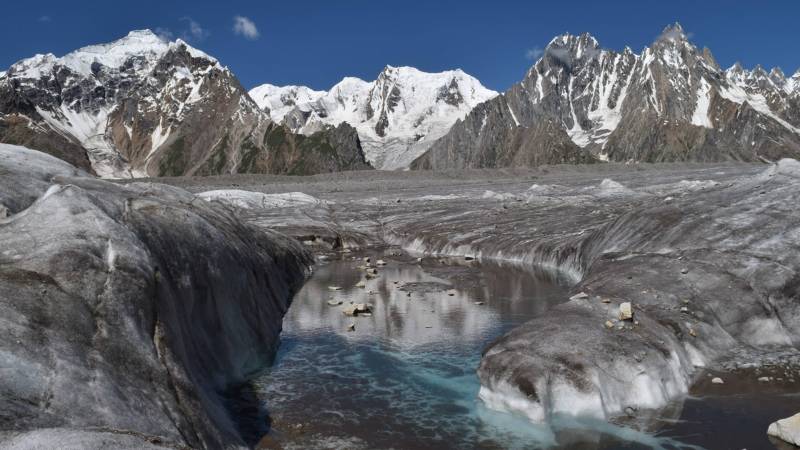
Various regions of Pakistan are currently experiencing intense cold and fog. The plains register low temperatures, while the northern mountainous areas have yet to witness snowfall.
The Meteorological Department states that the winter's dry spell may lead to heightened cold and fog in January.
In Khyber Pakhtunkhwa's Swat district, the typical winter pattern involves initial rains in the last 10 to 15 days of November, followed by snowfall in December. However, climate change has disrupted this routine, resulting in a lack of rain and snow. This deviation has significantly decreased tourist activity in the region, causing concern among those involved in the tourism sector.
Zahid Khan, President of the Hotel Association, laments the impact of climate change and rampant deforestation, which have contributed to the absence of rain and snowfall this year. Despite prolonged anticipation for snowfall to compensate for the summer deficit, January has not brought any precipitation, leading to reduced tourist arrivals. The traditional snowfall season in Swat, spanning from November to April, faces an unprecedented situation this time.
Khan underscores the drawbacks of delayed snowfall, emphasising that late snow tends to melt rapidly, resulting in early summer floods. The tourism sector, already affected by the prior impact of the pandemic and floods, is grappling with low tourist numbers this year due to the weather conditions.
Waheed Ullah Qarar, media coordinator of Malam Jabba Ski Resort, notes a significant reduction in nationwide snowfall compared to the previous year. He highlights that Malam Jabba, located at an elevation of approximately 9,000 feet above sea level, has experienced diminished snowfall, posing challenges for tourism and skiing activities.
Qarar elaborates on efforts to mitigate the impact, mentioning the use of advanced machines by an international team to produce artificial snow for skiing and snowboarding. The emphasis is on creating a suitable environment for tourists and skiers by ensuring that the machine-generated ice aligns with optimal temperature and humidity conditions.
Environmental concerns are raised by Dr Alam Zeib, who emphasises the link between climate change, deforestation, and temperature variations. Despite being halfway through winter, there is a notable absence of snow on mountains in Swat, a region accustomed to significant snow cover by January. Dr Alam Zeib warns of potential water scarcity, citing decreasing water levels in reservoirs and drying springs due to the lack of rain.
Dr Alam Zeib advocates for the preservation of forests to mitigate climate change effects. He expresses apprehension regarding plans to cut over 500,000 trees in Swat Motorway Phase Two. As Swat is a unique region with diverse tourist attractions, including more than 24 alpine lakes, collective efforts from the government and the public are deemed necessary to safeguard it from the adverse impacts of climate change.

